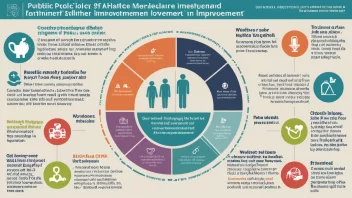Introduction
In the field of public administration, ethics plays a crucial role in ensuring that government officials and agencies operate with integrity and accountability. This article will guide you through the essential steps to understand and navigate the ethical landscape in public administration. You will learn about the importance of ethical principles, how to identify ethical dilemmas, and strategies for implementing ethical practices in your work.
Step 1: Understand the Importance of Ethics
Before diving into the specifics of ethical practices, it’s essential to grasp why ethics matter in public administration. Ethics serve as a framework for decision-making and behavior, guiding officials to act in the best interest of the public.
- Accountability: Ethical practices promote accountability among public officials.
- Trust: A commitment to ethics fosters public trust in government institutions.
- Transparency: Ethical guidelines encourage transparency in government operations.
Step 2: Identify Ethical Principles
Familiarize yourself with the core ethical principles that underpin public administration. These principles include:
- Integrity: Acting with honesty and consistency.
- Fairness: Treating all individuals equitably and justly.
- Respect: Valuing the dignity of all individuals.
- Responsibility: Acknowledging and accepting the consequences of one’s actions.
Step 3: Recognize Ethical Dilemmas
Ethical dilemmas often arise in public administration, where officials must make difficult choices. Recognizing these dilemmas is the first step toward addressing them.
Common Situations Leading to Ethical Dilemmas:
- Conflicts of interest
- Misuse of public resources
- Pressure from superiors or stakeholders
Step 4: Develop Ethical Decision-Making Skills
Once you can identify ethical dilemmas, the next step is to develop skills to make ethical decisions. Consider the following approaches:
Utilize Ethical Frameworks:
Frameworks can provide structure to your decision-making process. Some common frameworks include:
- Utilitarianism: The best action is the one that maximizes overall happiness.
- Deontological Ethics: Focuses on rules and duties rather than consequences.
- Virtue Ethics: Emphasizes character and the importance of moral virtues.
Ask Key Questions:
When faced with a decision, consider asking:
- What are the potential consequences of my decision?
- Does my decision align with ethical principles?
- How would I feel if my decision was made public?
Step 5: Implement Ethical Practices
Implementing ethical practices within your organization is essential for fostering a culture of integrity. Here are some strategies:
Establish Clear Policies:
Develop and communicate clear ethical guidelines within your organization. Ensure all employees understand these policies and their importance.
Provide Ethics Training:
Regular training sessions can help employees recognize ethical dilemmas and equip them with the skills to address them. Consider workshops, seminars, or online courses.
Encourage Open Dialogue:
Create an environment where employees feel comfortable discussing ethical concerns without fear of retribution. This can be achieved through anonymous reporting systems or regular feedback sessions.
Step 6: Evaluate and Reflect
Finally, it’s important to regularly evaluate the effectiveness of your ethical practices and reflect on areas for improvement.
Conduct Assessments:
Periodically assess your organization’s adherence to ethical guidelines. This could involve surveys, interviews, or audits.
Reflect on Experiences:
Encourage individuals to reflect on their experiences with ethical dilemmas. What worked? What didn’t? This reflection can lead to valuable insights for future decision-making.
Conclusion
In summary, navigating the ethical landscape in public administration involves understanding the importance of ethics, identifying ethical principles, recognizing dilemmas, developing decision-making skills, implementing practices, and evaluating effectiveness. By committing to ethical practices, public administrators can enhance accountability, build public trust, and ultimately serve their communities more effectively. Remember, ethics is not a one-time effort but a continuous commitment to integrity and responsibility.






